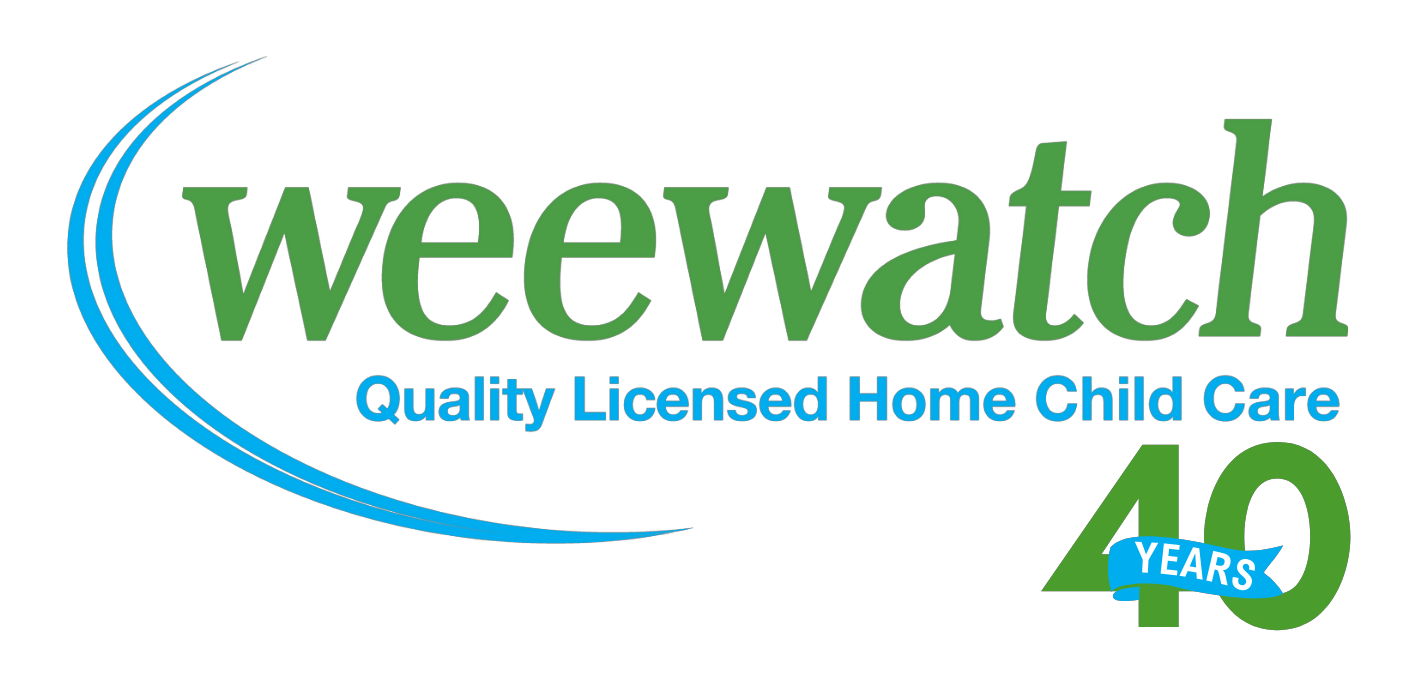Finding childcare for your little one is one of the most difficult decisions a parent has to make. The thought of leaving your child in someone else’s care can be stressful. How could someone else keep your child as safe as you would?
Whether you choose a daycare centre or in home childcare, question the Provider’s safety precautions to make sure your child will be kept safe.
Here are some of the biggest safety concerns parents have:
- Lack of supervision. When you have a large group of children you need to make sure you have enough adults to supervise; all infants and toddlers should be in sight at all times and all young children are to be supervised at all times.
- Wee Watch only allows maximum of six children and of those six children only two can be under the age of two. Providers must be visibly connected with each child at all times.
- Staff Under Trained. The best way to improve safety and prevent injuries is to have health and safety policies in place that everyone should know and follow.
- Wee Watch Providers receive a copy of the Wee Watch Provider Manual that includes all of our rules and regulations, policies and procedures, required forms and programming. Providers also go through a training process and are continually supported by Wee Watch staff and Registered Early Childhood Educators. Providers are also required to complete First Aid and CPR training.
- Illness Transmission. A group of children playing with the same toys means germs are being spread. Providers should have proper cleaning, sanitizing and disinfecting policies in pace to prevent the transmission of illness.
- Wee Watch Providers receive a detailed resource for proper hand washing for themselves as well as the children in their care. Wee Watch also has sanitary practices in place that require Providers to clean & sanitize equipment and toys daily.
- Medication Administered Improperly. When medications are given carelessly or improperly dosed, poisoning can happen.
- Wee Watch Providers must have a medication record for both prescription and non prescription drugs, completed and signed by parents including medication name, dosage, times of administration, and the reason for the medication.
- Presence of Poisons and Toxic Substances. According to Child Care Aware, accidental poisoning is a leading cause of injury and death among young children.
- Wee Watch Providers have a list and are aware of poisonous indoor and outdoor plants. Providers must make sure all poisonous plants are inaccessible to children.
- Unsafe and Recalled Nursery Products and Equipment. It is important to make sure the equipment and toys children play with everyday are safe to use.
- Wee Watch supplies some equipment to Providers; all toys and equipment that a Provider supplies must be approved by Wee Watch.
- Lack of Food Safety. Food-borne illnesses can result from improper handling of food. Staff and Providers should also be well-versed on proper handling and storage of food.
- Wee Watch Providers are given information on food service tips to prevent the risk of spreading micro-organisms found on food. They are also aware of choking hazards; they know which foods to feed which age and how to cut certain foods to avoid choking. When it comes to allergies, Wee Watch Providers are required to post allergy notices prominently in the kitchen where everyone can see it. Providers must never introduce new foods to children.
- Failure to be prepared for an Emergency. Every childcare facility should have an emergency plan in place that covers things like health-related accidents, fires, or allergic reactions.
- Wee Watch Providers have first aid and CPR training, they must have an emergency phone list posted in the home, are required to test the smoke detectors in the home monthly, complete a fire evacuation plan and have it posted in the home, and conduct monthly fire drills with children, showing them the quickest exits from various parts of the home.
Monthly, unscheduled visits from Wee Watch Home Visitors (RECE’s) and quarterly site safety checks help ensure Wee Watch homes are safe for children to learn and grow.
